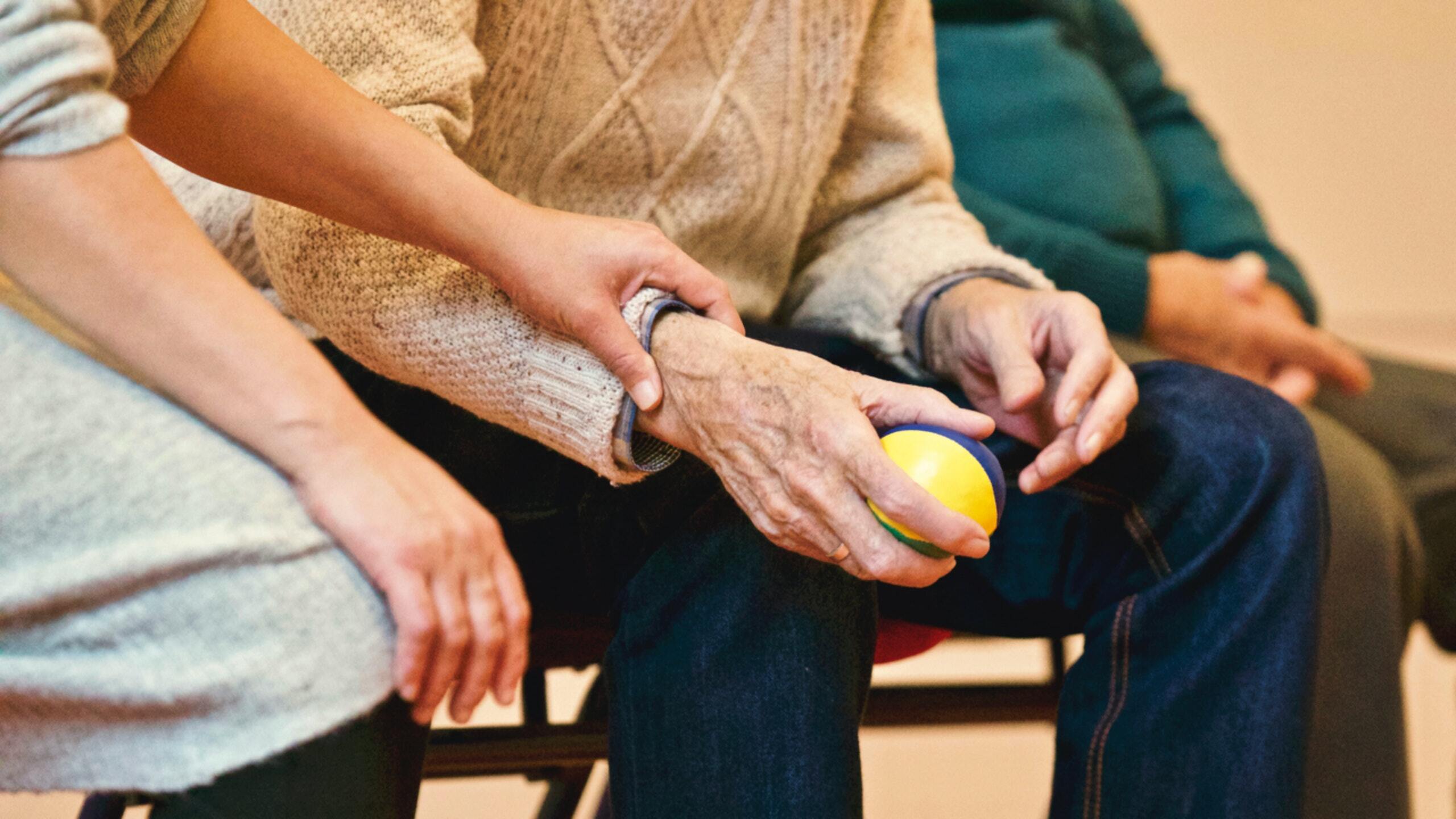Have you ever thought about putting off your daily walk, but ended up feeling great after? That’s because moving your body can lower stress levels, boost endorphins, and increase overall energy. Almost 1 in 2 (46%) of Australians between 16 – 85 years old will experience a mental health disorder at some stage in their lifetime.* With an especially tough last few years of uncertainty, isolation, and being separated from friends and family it’s more important than ever to put in place strategies to combat symptoms of depression and anxiety.
The incorporation of physical activity not only improves physical function, but also addresses depression and anxiety symptoms. Even low intensity exercise, including walking or strength training, can have significant benefits for quality of life and wellbeing – particularly while social distance guidelines are followed during a pandemic.
At Plena, our Occupational Therapists work with our elderly clients to help better their quality of life and in turn give them a better sense of purpose, both individually and in their community.
Poor Mental Health In Older Adults Can Present In Many Ways, Including:
- Social isolation
- Lack of motivation to engage in daily activities
- Low mood
- Behaviours of concern
- Anxiety about leaving house/engagement with others
- Hesitancy to make changes to routine
- Hesitancy to engage with therapists
- Disinterest/disengagement in social and leisure activities
How Physical Activity Helps
The benefits of exercise and physical activity towards physical and mental health have shown to be extensive, and our Occupational Therapists can help to better the quality of life for our clients.
A 2020 study looked at the mental health benefits of physical activity in older adults who have survived the Covid-19 pandemic. The mood and activity survey attempted to determine the relationship between the amount of physical activity performed by older adults above the age of 50 and depression and anxiety symptoms during Covid-19 social distancing guidelines. The study found a relationship between the level of physical activity and mental health, reducing depression symptoms by 7.2%.
A quick glance at some benefits of exercise and physical activity on mental health:
- Reduced stress levels
- Improved confidence and self-efficacy
- Increased energy levels and decreased feelings of fatigue
- Improved ability to multi-task and problem solve
- Increased psychological resilience
- Reduced risk and severity of anxiety and depression
How Occupational Therapy Plays A Part
Occupational Therapists support a wide range of individuals within the community, some living with mental health challenges. While often initially being referred for other concerns, such as equipment prescription and home modifications, recognising mental health challenges is an important consideration, and Occupational Therapists can help address barriers and implement strategies for improvements.
With the knowledge and understanding of roles, routines, and engagement in meaningful activities, Occupational Therapists have an important role to play in mental health. Imbalance or loss of these aspects often impacts on someone’s wellbeing and self-worth.
Our Occupational Therapists work with people living with a mental health condition through either a direct referral for a client with a diagnosed condition or through the assessment process which includes discussions and observations with the individual and their support network. For example: those with physical conditions such as Multiple Sclerosis may also be living with a mental health condition, such as anxiety and depression, associated with their diagnosis. Their mental health may be impacting their engagement in their activities of daily living, physical function, and their overall quality of life.
Occupational Therapists use a variety of strategies to assist people with managing their mental health by increasing their safety within their home and community and improving their quality of life. The strategies are dependent on the client’s circumstances and what they want to achieve out of therapy. They can include:
- Stress management strategies such as relaxation/mindfulness/yoga
- Routine development
- Retraining in daily living activities
- Sensory interventions
- Modification of environments
- Home modifications
- Equipment provision
- Skills re-building
At the time of intervention by the therapist, the client may be experiencing a lot of change, may have difficulty engaging in home based Occupational Therapy, and may have a lot of complexities in their personal life. The change model enables the Occupational Therapist to determine whether the client is ready for more change, is receptive to the strategies recommended in therapy and is able to see the benefit of those changes on their quality of life.
Case Study – How Accessibility Can Improve Mental Health
The benefits Occupational Therapy can have on a client’s mental health are shown in this interaction from one of Plena Healthcare’s Occupational Therapists in Victoria.
Marta moved to Australia from Poland, her son had recently passed away and she had no other family in Australia. She attended a Polish social group which was cancelled due to Covid-19, and was lacking overall strength and balance, creating particular difficulty with her ability to negotiate the steps at the front and back of her home. She reported feeling lonely, isolated, and depressed.
Our Plena Occupational Therapist was able to work in conjunction with Marta’s case manager to organise regular Polish support workers as part of her home care service. The support workers were able to spend time with Marta; going shopping, heading out on regular coffee outings, and assisting with daily activities.
Home modifications were also recommended and completed by installing new hand rails and a ramp at the back door, allowing Marta to spend time outside in her garden on nice mornings.
After a few months of these strategies being implemented Marta reported that while she was still missing her son, overall, she was in much better spirits and greatly enjoyed spending more time in the community and outside in her garden. By identifying and addressing these barriers, our Plena Occupational Therapist was able to improve Marta’s quality of life and allow her to resume being an active member of her community.
This case study highlights how Occupational Therapy can improve an individuals mental Health by working with the client to identify the barriers impacting them. This is just one service we offer within the community and in residential aged care that can help improve mental health, contact us by clicking ‘Contact Us’ above or by giving 136 033 a call to see how we can help
If you or a loved one needs to talk to someone:
Lifeline – 13 11 14
Beyond Blue – 1300 224 636
*https://www.ajgponline.org/article/S1064-7481(20)30400-0/fulltext



